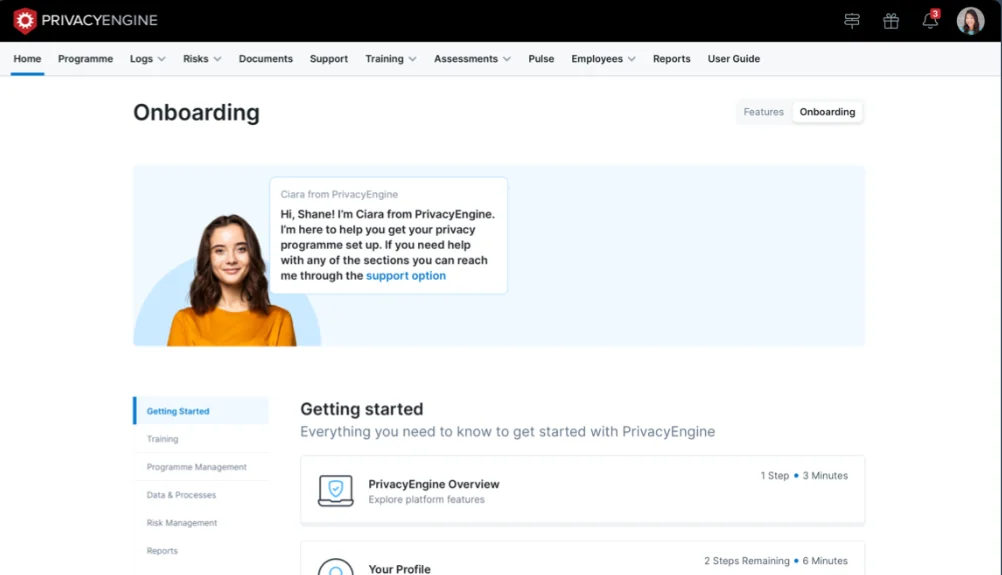The California Consumer Privacy Act (CCPA) is a landmark legislation that was enacted in the state of California, USA, in 2018. This act was designed to enhance privacy rights and consumer protection for residents of California. It has significant implications for how businesses manage and protect consumer data. This article will delve into the intricacies of the CCPA and its impact on data privacy management.
Understanding the CCPA is crucial for any organization that collects, processes, or stores personal data of California residents. Non-compliance can result in hefty fines and reputational damage. Therefore, it is essential for businesses to have a thorough understanding of the CCPA and its requirements.
Overview of the CCPA
The CCPA is a comprehensive data protection law that provides California residents with more control over their personal information. The law applies to any business, regardless of its location, that collects personal data of California residents and meets certain criteria.
The CCPA grants California residents several rights, including the right to know what personal information is being collected about them, the right to delete personal information held by businesses, and the right to opt-out of the sale of their personal information.
Key Provisions of the CCPA
The CCPA contains several key provisions that businesses must adhere to. These include transparency requirements, consumer rights, and obligations for businesses that sell consumer data.
Transparency requirements mandate businesses to inform consumers at or before the point of collection what categories of personal information will be collected and for what purpose. Consumers also have the right to request a business to disclose the categories and specific pieces of personal information that it has collected.
Impact of the CCPA on Data Privacy Management
The CCPA has a profound impact on data privacy management. It requires businesses to implement robust data protection measures and to be transparent about their data collection and processing practices.
Businesses must also provide mechanisms for consumers to exercise their rights under the CCPA. This includes providing a clear and conspicuous link on the business's website titled "Do Not Sell My Personal Information," where consumers can opt-out of the sale of their personal information.
Compliance with the CCPA
Compliance with the CCPA requires a comprehensive approach to data privacy management. Businesses must have a clear understanding of the data they collect, how it is used, and who it is shared with.
They must also implement processes to respond to consumer requests and to verify the identity of the consumer making the request. Additionally, businesses must train their staff on CCPA requirements and how to handle consumer requests.
Steps to Achieve Compliance
Achieving compliance with the CCPA involves several steps. First, businesses must conduct a data inventory to identify the personal information they collect, the sources of that information, the purpose for collecting it, and who it is shared with.
Next, businesses must update their privacy policies to include CCPA-required disclosures. They must also implement procedures to respond to consumer requests and to verify the identity of consumers making requests.
Penalties for Non-Compliance
Non-compliance with the CCPA can result in severe penalties. The law provides for civil penalties of up to $2,500 for each violation or $7,500 for each intentional violation.
In addition to civil penalties, businesses can also face private lawsuits from consumers. The CCPA provides a private right of action for consumers whose personal information is subject to an unauthorized access, theft, or disclosure as a result of a business's failure to implement reasonable security procedures and practices.
CCPA vs GDPR
The CCPA is often compared to the General Data Protection Regulation (GDPR), a comprehensive data protection law enacted by the European Union. While there are similarities between the two laws, there are also significant differences.
Both laws grant individuals rights over their personal data and require businesses to be transparent about their data collection and processing practices. However, the CCPA has a narrower scope than the GDPR and applies only to businesses that meet certain criteria.
Key Differences
One of the key differences between the CCPA and the GDPR is the definition of personal information. The CCPA has a broader definition that includes information that can be reasonably linked to a consumer or household.
Another key difference is the right to opt-out of the sale of personal information. This right is unique to the CCPA and is not provided under the GDPR.
Similarities
Despite the differences, there are several similarities between the CCPA and the GDPR. Both laws require businesses to provide clear and transparent information about their data collection and processing practices.
Both laws also grant individuals rights over their personal data, including the right to access their data, the right to delete their data, and the right to object to the processing of their data.
Conclusion
The CCPA is a significant legislation that has reshaped the landscape of data privacy management. It provides California residents with unprecedented control over their personal information and imposes stringent requirements on businesses that collect and process this information.
Compliance with the CCPA requires a comprehensive approach to data privacy management. Businesses must understand the data they collect, how it is used, and who it is shared with. They must also implement robust data protection measures and provide mechanisms for consumers to exercise their rights under the CCPA.
